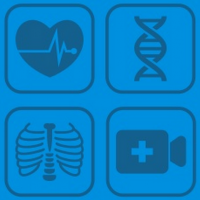Google Has Big Plans for the Health Care Industry

Google's foray into research is not new, and one of the areas that Google has invested in is life sciences research. During the last few months, Google has been in the news for the health care technological advances that it’s working on.
Google recently announced its foray into the early detection of deadly diseases, such as cancer and heart disease, among others. Google is working to develop nanoparticles that would somehow be injected into the blood stream. These nanoparticles have some sort of magnetic properties that would leave a trail, and their respective movements would then be studied by a wearable device.
These particles will eventually help study the biochemical changes happening in the body, and the related analysis will provide an early indication of diseases. Medical diagnosis is usually a reactive phenomenon, and this endeavor from Google, though in its early stages of research, intends to make diagnosis early and proactive.
In early 2014, Google announced its work on smart contact lenses that would help in the detection of diabetes. This device helps calculate blood sugar levels, which eliminates the need to prick fingers to get blood samples. It accomplishes this by monitoring blood sugar levels by means of a micro sensor, fitted to the contact lens, which rapidly assesses the data from tears.
These two projects illustrate Google's attempt to understand the systems inside the human body. But its health care endeavors don’t seem to be limited to mining data from inside the human body, and this is evident from the Lift Labs acquisition that Google recently made. Lift Labs is credited with inventing a tremor-free spoon that minimizes the effects of tremors usually experienced by patients suffering from Parkinson’s disease. This device works on principles similiar to those used in modern cameras that help negate the impact of shaking hands while taking pictures.
Google Glass is also engaged in some exciting uses in the medical field. Most of its compelling uses have been in the aspect of patient care, where quicker, accurate access of data could help make better, faster decisions during medical exams and procedures. Most of these discoveries are at the early stages of research, and of course there is the possibility of mixed success and slow product maturity.
Whatever the case may be, Google has made some significant announcements in 2014 that indicate their intention to make a mark in the health care space. Be it the announcement of Google Fit or any of the above examples, it's obvious that Google has its sights on something bigger than just being the best at searching the Internet.

